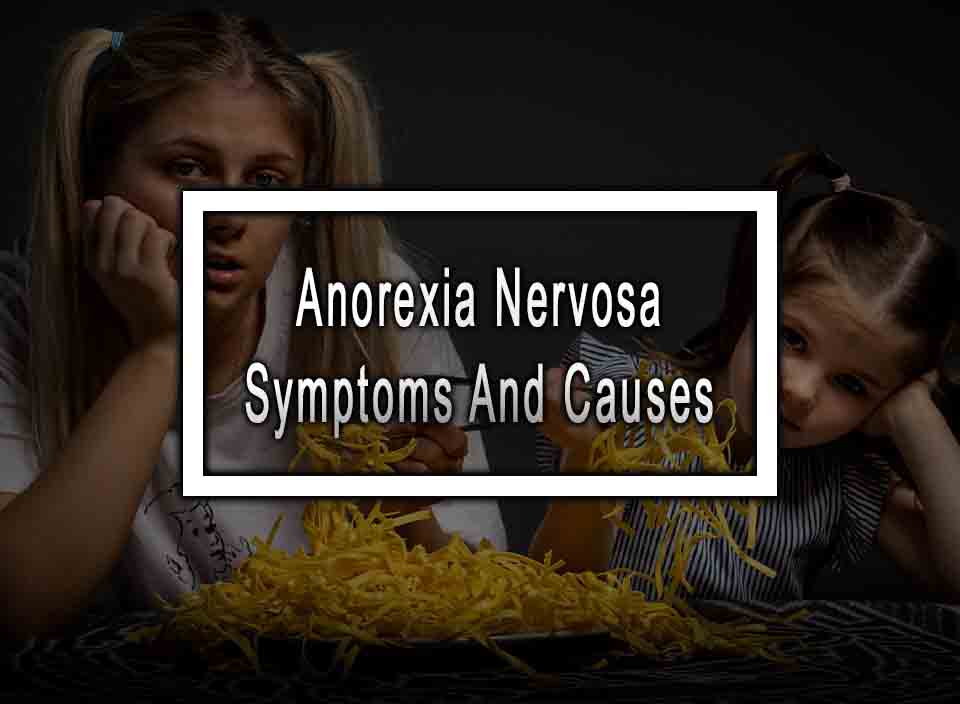Anorexia nervosa, commonly referred to as anorexia, is an eating disorder characterized by an obsessive fear of gaining weight or becoming fat. People with anorexia have an inaccurate perception of their body weight, leading them to restrict their food intake excessively, exercise excessively, and sometimes use other risky behaviors to lose weight. Anorexia affects people of all ages and genders but is more common among adolescent females. This article explores the symptoms and causes of anorexia nervosa.
Table of Contents
ToggleSymptoms of Anorexia Nervosa
The main symptom of anorexia nervosa is an intense fear of gaining weight. People with anorexia often view themselves as overweight, despite being thin or underweight. They tend to avoid eating or limit the amount they eat, leading to a significant reduction in body weight. The following are common symptoms of anorexia nervosa:
- Dramatic weight loss: A person with anorexia may have a significant decrease in body weight, well below what is considered healthy for their age, gender, and height.
- Distorted perception of body weight: People with anorexia often view themselves as overweight, even when they are underweight.
- Restricted eating: People with anorexia tend to avoid eating or limit the amount they eat.
- Preoccupation with food and weight: Anorexia leads to constantly thinking about food and weight, which can interfere with other activities and relationships.
- Excessive exercise: People with anorexia may exercise excessively, even when they are sick or injured.
- Difficulty concentrating: Anorexia can cause difficulty concentrating due to a lack of proper nutrition and inadequate caloric intake.
- Fatigue: People with anorexia often feel fatigued due to the lack of energy from food and nutrients.
- Social withdrawal: Anorexia nervosa can lead to social withdrawal because of the initial efforts that come from being around people.
Causes of Anorexia Nervosa
The exact cause of anorexia nervosa is unknown, but several factors can contribute to its development. These include:
- Genetics: Some studies suggest that anorexia may have a genetic component. People with a family history of anorexia or other eating disorders may be more likely to develop anorexia.
- Psychological factors: Anorexia is often associated with low self-esteem, anxiety, depression, or other mental health disorders.
- Societal pressure: Media, societal, and cultural pressures that emphasize thinness and beauty can contribute to the development of anorexia.
- Trauma or abuse: People who have experienced childhood trauma or abuse may be more likely to develop anorexia.
- Family dysfunction: Anorexia nervosa is more common in families with a history of dysfunction, including emotional conflicts, physical or sexual abuse, or neglect.
Conclusion
Anorexia nervosa is a dangerous and potentially life-threatening eating disorder. The symptoms of anorexia include dramatic weight loss, distorted body perception, restricted eating, and obsessive thoughts about food and weight. Anorexia nervosa can affect anyone, but it is more common in young women. The causes of anorexia are complex and may include genetic, psychological, societal, traumatic, or family factors. If you or someone you know is struggling with anorexia, seek help immediately. Early intervention and treatment can help prevent severe health complications and potentially save lives.
Anorexia Nervosa FAQ
Here are the most common questions about anorexia nervosa.
How is anorexia nervosa diagnosed?
Anorexia nervosa is typically diagnosed through a combination of physical and psychological evaluations. Doctors may conduct blood tests to evaluate nutritional deficiencies, and may also assess for physical symptoms such as low blood pressure or abnormal heart rhythms. A psychological evaluation may involve interviews to assess the individual’s thoughts and behaviors related to food and weight.
How is anorexia nervosa treated?
Treatment for anorexia nervosa typically involves a combination of medical, nutritional, and psychological interventions. Individuals may need to be hospitalized initially to stabilize medical complications and restore weight. Therapy, including individual and family therapy, is also typically employed to address the underlying psychological factors contributing to the disorder.
Is anorexia nervosa curable?
Anorexia nervosa can be a chronic condition, and some individuals may struggle with the disorder over the long term. However, with the right treatment and ongoing support, many people are able to recover from anorexia nervosa and lead healthy, fulfilling lives.
What is the prognosis for individuals with anorexia nervosa?
The prognosis for individuals with anorexia nervosa can vary depending on a variety of factors. Treatment outcomes depend on the severity of the disorder, the individual’s willingness to engage in treatment, and the presence of any co-occurring mental health conditions. With prompt and effective intervention, many individuals are able to recover from anorexia nervosa and lead healthy, fulfilling lives.
More like this: Hoarding Disorder Symptoms, And Treatment












